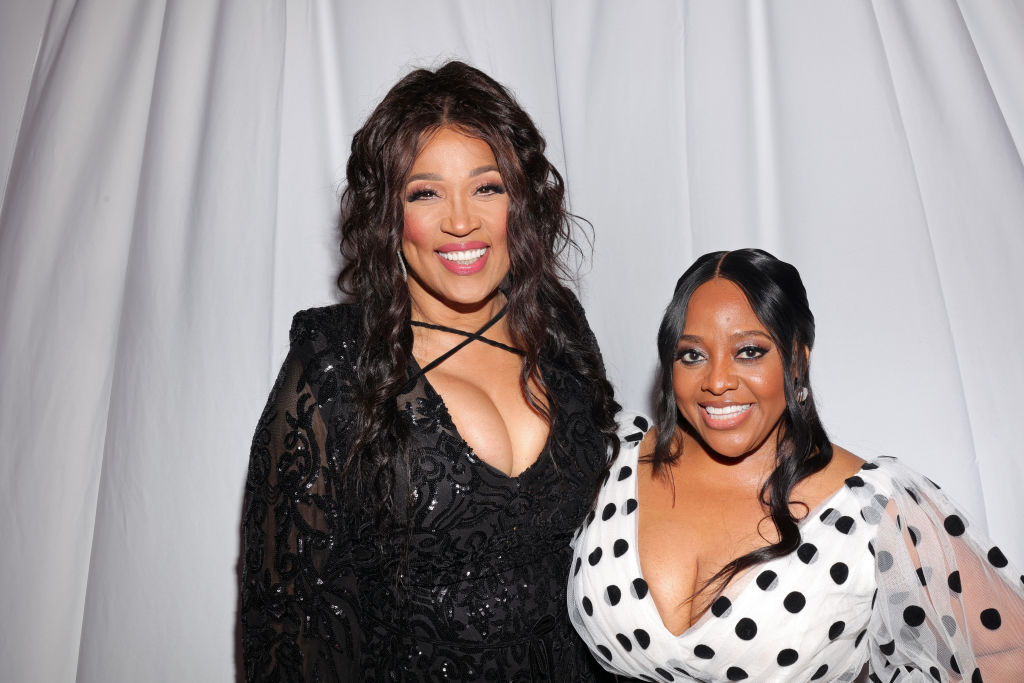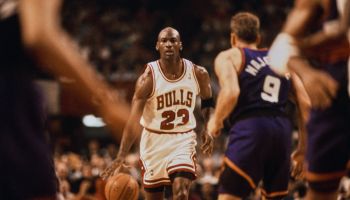The Dozens: The Old School Game With Modern Implications

*Disclaimer: The following piece is intended for entertainment purposes only. Please note that nobody’s mama, daddy, or greasy-greasy granny who got holes in her panties was harmed during its creation.
It’s back-to-school time. The days are getting more structured. The academic frustrations are starting to rise. And, at certain bus stops, cafeteria tables, and locker rooms, the jokes are starting to fly.
Because some of us know, it’s not just the end of the summer; it’s “Signifyin’ Season.”
If you grew up Black (and, honestly, male), you probably learned how to play one of our culture’s most important, yet overlooked skill games: The Dozens. You might’ve called it “snaps.” Others called it “jonin’,” “carryin’,” “treatin’,” or “roasting.” But the premise is universal: somebody says something slick about you (or, more likely, about your mama), you’re anthropologically obligated to fire back, the crowd laughs, and the circle tightens. No blood, no foul; just wit, timing, and resilience.
The dozens was never just a game. It’s been a proving ground. It taught you where the line was between humor and cruelty, between confidence and arrogance, between being able to laugh at someone’s momentary shortcoming and becoming the business end of the joke yourself. It sharpened your tongue, yes, but more importantly, it toughened your skin. And in a world where Black kids are still under a microscope in classrooms that rarely give them the benefit of the doubt, that’s not a trivial skill.
Okay, real quick. Why is it the dozens?
The roots of the name “the dozens” run deep. Historians trace it back to the days of slavery, when people deemed weak, disabled, or “damaged” were sold in lots of a dozen at a discount (think of that section at Ikea by the exit, but with Black people, and totally not cool). To be insulted as “a dozen” was to be branded as defective, worthless, less than whole. Over time, that invective morphed into a ritual of verbal sparring within Black communities, where turning the pain of devaluation into benign interpersonal humor became its own form of resistance. What began as a mark of shame was flipped into a tool of cultural ownership and agency.
In its modern iteration, it’s a balance of observation and absurdity that might present itself as a sarcastic comment (“Nice haircut”), or an equally abstract snap (“They got Stevie Wonder workin’ at your barbershop again?”). Either way, the goal is to disarm or dissuade actual conflict by creating a manufactured and fun one.
Let’s be clear: the dozens is not bullying. Bullying is about power, domination, and cruelty. The dozens is about community, quickness, and, believe it or not, mutual respect. You could always tell the difference. If a line got crossed, a boundary was violated, or a comment got too personal, you’d hear the collective “nah, chill” from the crowd. The game was self-policing, and it taught you the nuances of respect in real time.
For a generation of Black kids, it was the earliest form of peer-driven social-emotional learning. You learned to think before you spoke. You learned how to read a room. You learned that if you couldn’t laugh at yourself, nobody would let you laugh at someone else. And you learned that confidence isn’t about never being clowned; it’s about knowing who you are so deeply that a joke can’t undo you.
(Sidenote: Do you know how hard it is to focus in Geometry class when you just heard Clarence tell Mike that the Chaps on his shirt stands for, “Can’t Have A Polo, Sucka”? I don’t think I learned anything that afternoon.)
It was about learning balance. That you might’ve been that guy, but you were also one extra stripe on your sneaker, weird ‘fit, or missed deodorant swipe away from a terrible Wednesday.
Now, let’s drop that into the 2025 classroom. Black kids today are under more pressure than ever. As always, they’re expected to outperform, out-behave, and out-achieve just to get the same credit their peers get for showing up. But now, parents are stretched thinner. Teachers are under attack. Curricula is being gutted of the very history that would give our kids context for their greatness.
The result? School is a high-pressure environment where one misstep feels like it can cost everything: scholarships, reputations, opportunities. Add social media to the mix, and the stakes are even higher. A stumble in 1991 might have lasted until lunch or, if it was really bad, the after-school activity bus. A stumble in 2025 lasts until someone deletes the video off TikTok (so, like, never).
That’s where the dozens comes back in. Not as cruelty, but as resilience training. As a reminder that you can be laughed at and still be fine. That you can laugh with others and not lose yourself. That the ability to take a hit and keep your cool is just as important as going beast mode on the ACT.
You gotta contain multitudes, but you can’t ever get too high on yourself.
(Sidenote two: One time, I had my homeboy stop me in the hall and tell me everything about my outfit was dope, except for the face wearing it. I still live with that.)
We don’t often frame laughter as a survival skill, but for Black folks, it always has been. Humor is how we’ve processed pain, translated struggle into coded language, and maintained our humanity in inhuman conditions. From enslaved Africans telling trickster tales about Br’er Rabbit to Richard Pryor roasting the inconsistencies of American racism in real time, our culture has always used humor as both weapon and shield.
For kids, the dozens could serve as a training ground for that skill. It’s where you learn that your real self-worth can’t be handed to you by applause or taken away by someone’s punchline. It’s where you learn your lane, gain confidence, and figure out how to spontaneously pivot when things don’t go your way. These are life skills, not playground distractions.
Let’s be clear. I’m not telling you to randomly insult your kids because it’s entertaining. They’ll be in therapy 20 years from now, working through that ish. I’m saying there’s a deft way to teach survival and perspective rooted in our own dialect, and it might be fun.
Of course, it takes guidance. Left unchecked, the dozens can slide into cruelty. That’s where parents, especially Black fathers (sorry, moms), have to step in; not to kill the game, but to frame it.
Teach your kids the rules:
- Never go after something someone can’t change.
- Never talk about something someone has asked you not to.
- Don’t take it there if you’re not ready to go there.
- Everybody who showed up as friends leaves as friends.
That balance, swagger sans cruelty, is what transforms the dozens from an immature pastime into a tool for building self-awareness and mutual respect. Nobody’s there to humiliate anybody. We just tryna fire off some jokes before Phys Ed.
At its essence, it’s about casually learning the art of social navigation in a world that is always trying to knock you off balance.
Think about it: some of the sharpest Black voices in history sharpened their skills on the dozens. Muhammad Ali’s braggadocious rhymes? Dozens DNA. Every comedian from Moms Mabley to Dave Chappelle? Dozens graduates. Even Barack Obama, who roasted Donald Trump so bad he’s bringing back Jim Crow now, was pulling from that same tradition when he did it.
Hip-Hop itself is a form of the dozens. Before the beefs became weaponized (literally), battle raps were just poetic snaps.
These weren’t just jokes. They were lessons in timing, confidence, and presence. Skills that transfer from the playground to the classroom to the boardroom. If you can survive daily lunch table sessions of “yo mama” jokes without breaking, you can survive a hostile meeting without folding.
(Sidenote three: I had a boss that I used to personally call “Sandra Huxtable” because they only showed up every once and a while and we had to pretend like they’d been there the whole time. The dozens taught me how to cope like that.)
One of the most dangerous things about the world our kids are growing up in is how serious and immediate everything feels. Social media thrives on outrage. Classrooms thrive on measurement. Sports thrive on comparison. There’s not a lot of room left for play.
But the ability to engage in play for the sake of play is a life-saving skill. It keeps ego in check. It diffuses conflict. It reminds you that perfection isn’t the point, growth is. Black kids especially need this reminder because the pressure of respectability politics is real. They’re often told they have to be all things and show up in all ways for a broader society and culture that will never fully embrace them. But without some balance somewhere, that pressure breaks you.
The dozens is a game of balance. It’s the reminder that you can be serious about your goals without being so serious about yourself that you can’t laugh when you come up a little short.
This is our own pedagogy of resilience. It doesn’t come from educational consultants or pediatric psychologists; it comes from porches, playgrounds, and bus stops. It was raw, sometimes rough, but deeply effective. It taught empathy (know when you’ve gone too far), communication (find the right words, fast), and self-regulation (don’t let them see you sweat).
Our kids deserve to know that what they inherit from us isn’t just trauma, it’s tools. The dozens is one of those tools.
So, as this school year kicks off, I’m teaching my kids the dozens (at least trying to); not to toughen them into bullies, but to sharpen them into survivors. I’m teaching them that words can sting, but they don’t have to scar. That humor can heal, not harm. That sometimes, the best way to take the pressure off is to laugh… at yourself, at the situation, at the absurdity of it all.
Because in this high-pressure, high-stakes world, resilience doesn’t just come from test prep or GPA. It comes from knowing who you are, where you come from, and how to stand strong when the crowd is reveling in your shortcomings. Sometimes the laughter is against you. Sometimes it’s with you. Either way, you learn to stand tall.
That’s the real lesson plan. The dozens was never just a game. It was, and still is, an education. Roast these kids, man.
Corey Richardson is originally from Newport News, Va., and currently lives in Chicago, Ill. Ad guy by trade, Dad guy in life, and grilled meat enthusiast, Corey spends his time crafting words, cheering on beleaguered Washington DC sports franchises, and yelling obscenities at himself on golf courses. As the founder of The Instigation Department, you can follow him on Substack to keep up with his work.
The Dozens: The Old School Game With Modern Implications was originally published on newsone.com











